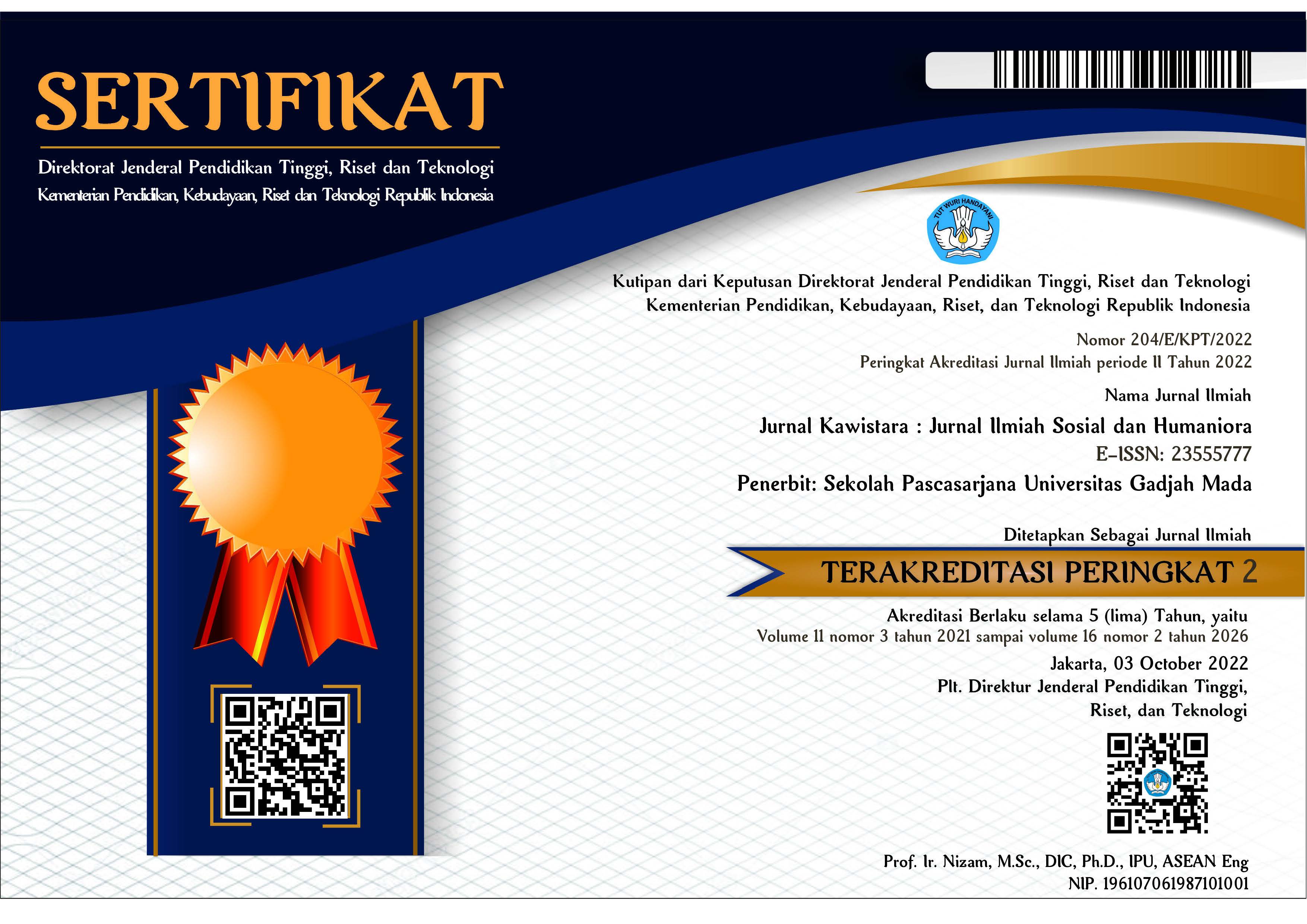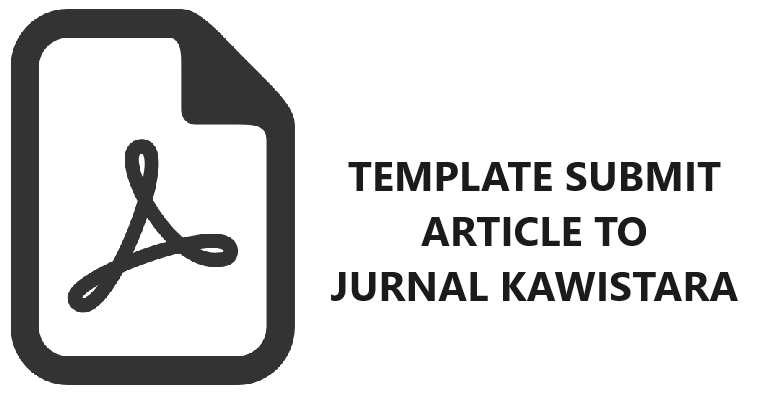Rural Identity and Its Roles in Boosting Local Economic Sustainability in Nglanggeran Village of Yogyakarta
Ratna Eka Suminar(1*), Sudaryono Sastrosasmito(2), Doddy Aditya Iskandar(3)
(1) Department of Architecture and Planning, Faculty of Engineering, Universitas Gadjah Mada
(2) Department of Architecture and Planning, Faculty of Engineering, Universitas Gadjah Mada
(3) Department of Architecture and Planning, Faculty of Engineering, Universitas Gadjah Mada
(*) Corresponding Author
Abstract
Contemporary studies on rural areas often focus on rural areas' disadvantages and inabilities to accelerate economic growth and stimulate regional development. Within this dominant perspective, local identity or culture is often seen as obstacles to development. In contrast, this article unpacks how rural identity can develop the local economy and then achieve sustainability in a rural area, which allows us to situate the constructive roles of of rural community in regional development. Drawing from field observation and unstructured interviews with resource persons from Nglanggeran Village in Gunung Kidul Regency, Yogyakarta, we found a reciprocal relationship between rural identity and local economy, of which it forms and reinforces rural sustainability. Our findings emphasize the importance of creating rural identity-based policy to bolster regional economy and development.
Keywords
Full Text:
PDFReferences
Alkire, S., Chatterjee, M., Conconi, A., Suman, S., & Vaz, A. (2014). Poverty in Rural and Urban Areas. In Oxford Poverty and Human Development Initiative.
Ayu, D., Utami, P., & Kusmiatun, A. (2021). Eksplorasi Folklor Kampung Pitu Nglanggeran (Kajian Sastra dengan Pendekatan Pariwisata). Widyaparwa, 49(2), 429–441.
Badan Pusat Statistik. (2020). Peraturan Kepala Badan Pusat Statistik Nomor 120 Tahun 2020 tentang Klasifikasi Desa Perkotaan dan Perdesaan di Indonesia. In bps.go.id. Badan Pusat Statistik. https://www.bps.go.id
Basile, G., & Cavallo, A. (2020). Rural identity, authenticity, and sustainability in Italian inner areas. Sustainability (Switzerland), 12(3). https://doi.org/10.3390/su12031272
Bruckmeier, K., & Tovey, H. (2009). Rural Sustainable Development in the Knowledge Society. Ashgate Publishing.
Cobbinah, P. B., Erdiaw-Kwasie, M. O., & Amoateng, P. (2015). Rethinking sustainable development within the framework of poverty and urbanisation in developing countries. Environmental Development, 13, 18–32. https://doi.org/10.1016/j.envdev.2014.11.001
Creswell, J. W., & Poth, C. N. (2016). Qualitative Inquiry & Research Design: Choosing Among Five Approaches (Fourth Edi). SAGE Publications.
de San Eugenio-Vela, J., & Barniol-Carcasona, M. (2015). The Relationship Between Rural Branding and Local Development. A Case Study in the Catalonia’s Countryside: Territoris Serens (El Lluçanès). Journal of Rural Studies, 37, 108–119. https://doi.org/10.1016/j.jrurstud.2015.01.001
Dehghanmongabadi, A. (2020). The Role of Social and Place Identities towards Promoting Sustainability Approaches and Behaviors. International Journal Of Architecture and Urban Development, 10(4), 49–56.
Diamond, E. P. (2023). Understanding Rural Identities and Environmental Policy Attitudes in America. Perspectives on Politics, 21(2), 502–518. https://doi.org/10.1017/S1537592721002231
Hall, S. (1990). Cultural Identity and Diaspora. In L. McDowell (Ed.), Undoing Place? (pp. 222–237). Routledge. https://doi.org/10.4324/9781003135593-8
Harrington, L. M. B. (2016). Sustainability Theory and Conceptual Considerations: A Review of Key Ideas for Sustainability, and the Rural Context. Papers in Applied Geography, 2(4), 365–382. https://doi.org/10.1080/23754931.2016.1239222
Itriyati, F. (2015). Dinamika Migrasi Desa Kota di Indonesia: Karakteristik dan Kehidupan Migran Baru di Tangerang, Propinsi Banten. Jurnal Sosiologi Reflektif, 10(1), 115–138. https://doi.org/10.14421/jsr.v10i1.1145
Kaymaz, I. (2013). Urban Landscape and Identity. Intech, 739–759. http://dx.doi.org/10.1039/C7RA00172J%0Ahttps://www.intechopen.com/books/advanced-biometric-technologies/liveness-detection-in-biometrics%0Ahttp://dx.doi.org/10.1016/j.colsurfa.2011.12.014
Kelly, P. F. (2011). Migration, agrarian transition, and rural change in Southeast Asia: Introduction. Critical Asian Studies, 43(4), 479–506. https://doi.org/10.1080/14672715.2011.623516
Nayono, S., & Nayono, S. E. (2021). Mapping the Problems, Stakeholders, and Potential Solutions of Solid Waste Management in a New-Emergence Tourist Area: A Case Study in Nglanggeran, Gunungsewu UNESCO Global Geopark. IOP Conference Series: Earth and Environmental Science, 832(1). https://doi.org/10.1088/1755-1315/832/1/012066
Ostrom, E. (1990). Governing the commons: the evolution of institutions for collective action. Governing the Commons: The Evolution of Institutions for Collective Action, 32(2), 280. https://doi.org/10.2307/3146384
Ostrom, Elinor. (2000). Collective action and the evolution of social norms. Journal of Economic Perspectives, 14(3), 137–158. https://doi.org/10.1080/19390459.2014.935173
Pol, E. (2002). The theoretical background of the City-Identity-Sustainability network. Environment and Behavior, 34(1), 8–25. https://doi.org/10.1177/0013916502034001002
Prayitno, G., & Subagiyo, A. (2018). Membangun Desa: Merencanakan Desa dengan Pendekatan Partisipatif dan Berkelanjutan. UB Press.
Relph, E. (1976). Place and Placeness. Pion Limited. https://doi.org/10.4215/rm2020.e19008
Rigg, J., Veeravongs, S., Veeravongs, L., & Rohitarachoon, P. (2008). Reconfiguring rural spaces and remaking rural lives in central Thailand. Journal of Southeast Asian Studies, 39(3), 355–381. https://doi.org/10.1017/S0022463408000350
Rosyadi, I. (2017). Identifikasi Faktor Penyebab Kemiskinan di Pedesaan dalam Perspektif Struktural. The 6th University Research Colloqium 2017 Universitas Muhammadiyah Magelang, 499–512.
Saputro, W. A., Purnomo, S., & Rahmawati, I. (2021). Contribution of Agroforestry Plants to Farmers’ Income in Nglanggeran Agricultural Technology Park. E3S Web of Conferences, 305(06001), 1–5. https://doi.org/10.1051/e3sconf/202130506001
Sekretariat Kabinet Republik Indonesia. (2021). Desa Wisata Nglanggeran Raih Gelar UNWTO Best Tourism Village. https://setkab.go.id/desa-wisata-nglanggeran-raih-gelar-unwto-best-tourism-village/
Setiawan, A. (2022). Merawat Keabadian Alam Nglanggeran. Portal Informasi Indonesia. https://indonesia.go.id/kategori/budaya/3551/merawat-keabadian-alam-nglanggeran
Soviana, N. N., Brahmantyo, B., Abdurrachman, M., & Sabila, F. S. N. (2020). “gunung Api Purba Nglanggeran” welcomes UNESCO Global Geopark Reassessment in 2019. IOP Conference Series: Earth and Environmental Science, 589(1). https://doi.org/10.1088/1755-1315/589/1/012025
Supriadi, S., Purwanto, M. R., & Rahmah, P. J. (2021). A Study on Nglanggeran Kampung Pitu: Sociologically and Anthropologically Perspectives. Ideas: Jurnal Pendidikan, Sosial, Dan Budaya, 7(4), 45. https://doi.org/10.32884/ideas.v7i4.392
Suyanto, A., Haryono, E., & Baiquni, M. (2020). The community-based conservation management in gunung sewu unesco global geopark cased study of Nglanggeran Geoheritage. IOP Conference Series: Earth and Environmental Science, 451(1). https://doi.org/10.1088/1755-1315/451/1/012049
Tajfel, H., & Turner, J. (2004). An Integrative Theory of Intergroup Conflict. In M. J. Hatch & M. Schultz (Eds.), Organizational Identity: A Reader (pp. 56–64). Oxford University Press.
Woods, M. (2005). Rural Geography: Processes, Responses and Experiences in Rural Restructuring. SAGE Publications.
Woods, M. (2011). Rural. In Scottish Geographical Journal. Routledge. https://doi.org/10.1080/14702541.2012.669944
Article Metrics
Refbacks
- There are currently no refbacks.
Copyright (c) 2023 Ratna Eka Suminar, Doddy Aditya Iskandar

This work is licensed under a Creative Commons Attribution-ShareAlike 4.0 International License.
Jurnal Kawistara is published by the Graduate School, Universitas Gadjah Mada.











